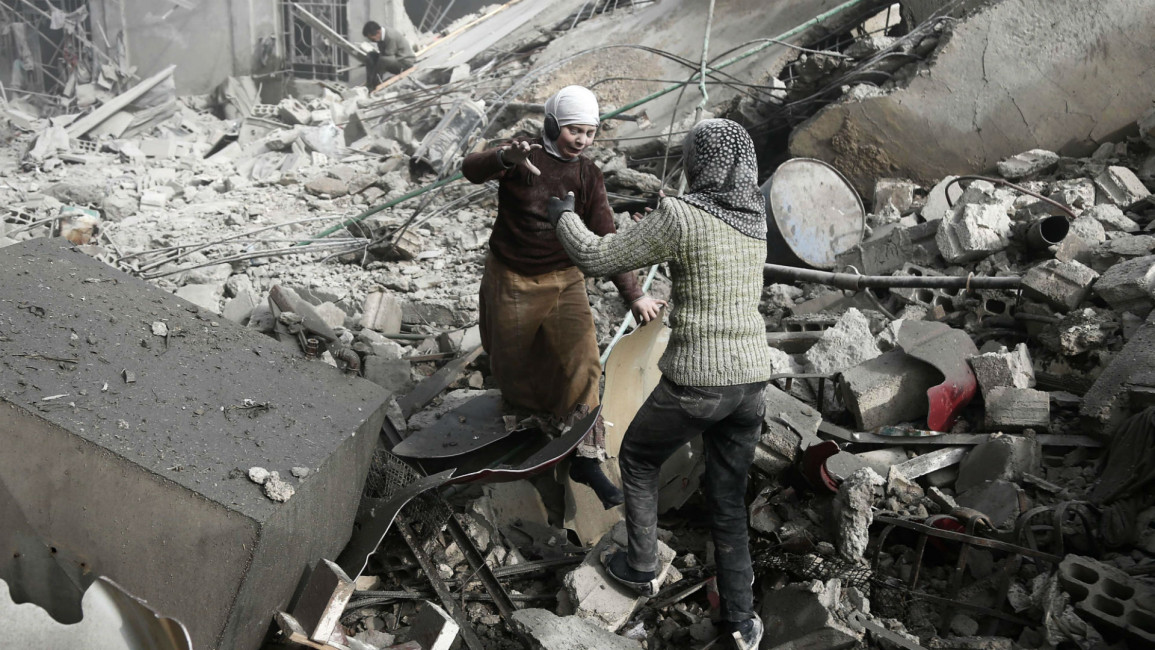Children killed in Syria airstrikes during UN aid chief visit
Ten children were among 24 people killed in airstrikes on a rebel enclave near the Syrian capital on Tuesday, a monitor said, as the UN's humanitarian chief paid his first visit to the country.
Reports said the raids were conducted by either regime or Russian aircrafts, reports said, the most deadly of which killed 13 civilians including seven children in the Hammuriyeh district of Eastern Ghouta.
Rebels bombarded two districts of the capital in retaliation, with Syrian state media reporting four people were killed.
Eastern Ghouta has been under government siege since 2013 and its estimated 400,000 inhabitants are suffering severe shortages of food and medicine.
The deadliest strikes hit the Hammuriyeh district, while more than 80 people were wounded in the bombardments of the rebel territory, said the Observatory, which relies on a network of sources inside Syria.
An AFP correspondent saw a rescuer emerge from the rubble carrying a child, as a man trapped up to his waist waited for people to dig him out.
The latest bloodshed in Syria's war - which is estimated to have claimed the lives of 340,000 people since 2011 - came as UN humanitarian boss Mark Lowcock discussed getting aid to civilians.
Lowcock, who took over as under-secretary-general for humanitarian affairs in September, met with Foreign Minister Walid Muallem as the UN seeks greater access to besieged populations.
After arriving in Damascus, Lowcock tweeted that he would meet government and "other key stakeholders and see first hand humanitarian situation & response".
The United Nations has said some 500 people are in critical condition inside Eastern Ghouta and need to be evacuated for urgent medical treatment.
Twenty-nine patients, mainly children, were allowed out in December under a deal struck between the regime and rebels.
Eastern Ghouta was one of four "de-escalation zones" agreed under a deal between rebel and regime backers but the opposition stronghold remains the target of intense regime airstrikes.
Syria's protracted conflict has tipped dramatically in the favour of President Bashar al-Assad thanks in major part to a two-year military intervention by Moscow.
Assad's forces are currently conducting an operation to carve out territory in the northwestern Idlib province, the last one in Syria that had remained fully beyond their control.
The Syrian conflict began when the Baath regime, in power since 1963 and led by Assad, responded with military force to peaceful protests demanding democratic reforms during the Arab Spring wave of uprisings, triggering an armed rebellion fuelled by mass defections from the Syrian army.
The brutal tactics pursued mainly by the regime, which have included the use of chemical weapons, sieges, mass executions and torture against civilians have led to war crimes investigations.



